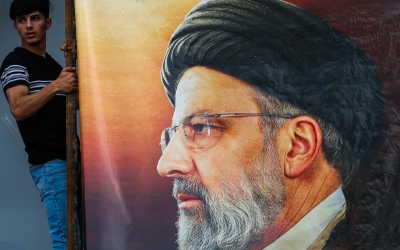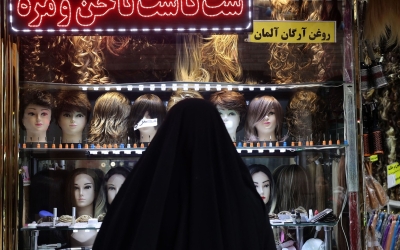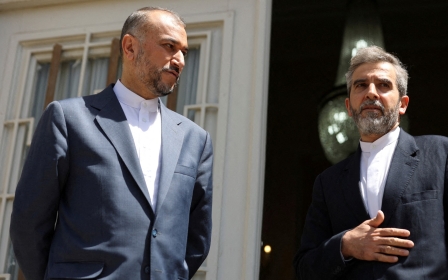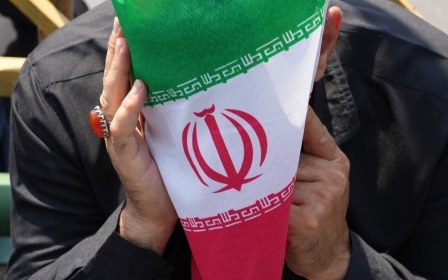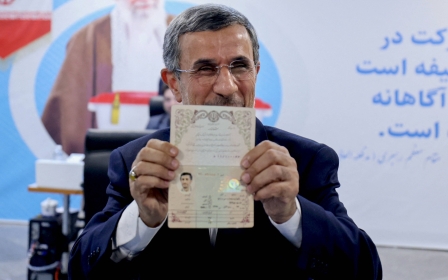Iran's Masoud Pezeshkian: Reformist hope or conservative trap?
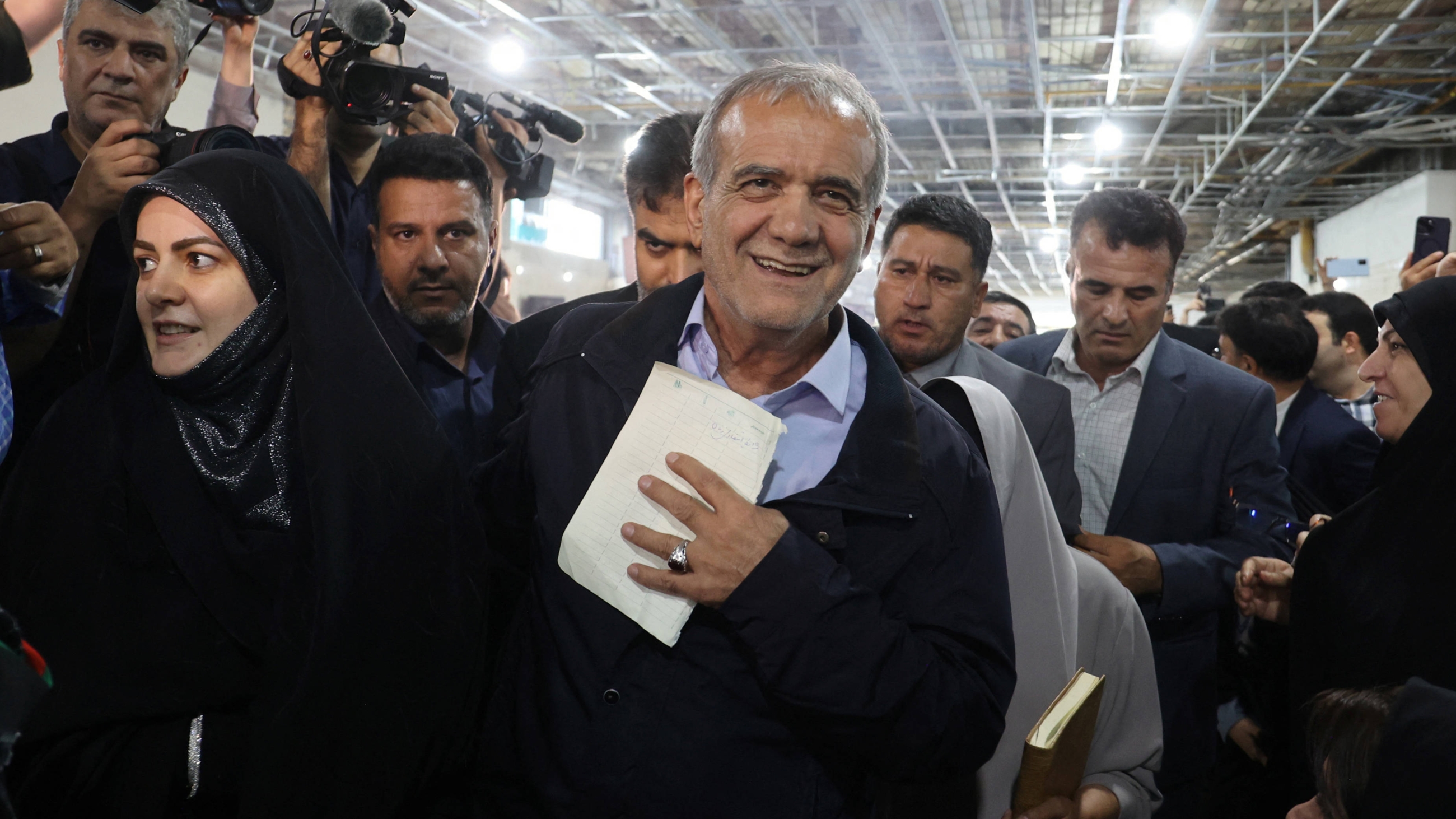
When Iran's Guardian Council announced the list of presidential candidates earlier in June, many were surprised to see a particular name: reformist Masoud Pezeshkian.
In recent years, the Islamic Republic has attempted to sideline and exclude reformists and moderates. The Guardian Council, whose 12 members are directly and indirectly appointed by Supreme Leader Ayatollah Ali Khamenei and tasked with vetting candidates, has rejected many strong reformist candidates running for the 28 June presidential elections.
Pezeshkian is now the sole candidate endorsed by all reformists in the election and the only candidate for those who desire change.
In recent years, Pezeshkian has demonstrated that he is a true reformist in both manner and principle. His positions have been so clear-cut that he was initially disqualified in the early stages of the recent parliamentary elections but was reinstated upon appealing against the decision.
Pezeshkian, 70, was born in the Kurdish city of Mahabad to an Azeri family. Before the 1979 Islamic Revolution, he was admitted to Tabriz University of Medical Sciences to study medicine in 1976.
New MEE newsletter: Jerusalem Dispatch
Sign up to get the latest insights and analysis on Israel-Palestine, alongside Turkey Unpacked and other MEE newsletters
During the eight-year Iran-Iraq war, he was responsible for dispatching medical teams to the front lines and simultaneously served as both a combatant and a doctor.
Pezeshkian's political life began with the rise of the reformist government of Mohammad Khatami (1997-2005) when he was appointed as the deputy health minister and then the minister of health.
During the presidency of principlist Mahmoud Ahmadinejad, Pezeshkian focused solely on his medical practice. According to him, during this time, he earned a good income, enough to buy a house with a garden and provide financial assistance to his relatives.
However, he did not abandon politics and ran in the eighth parliamentary elections. Despite various challenges, Pezeshkian has won every subsequent elections since.
In 2013, Pezeshkian registered for the presidential election but withdrew shortly after. He ran again in 2021 but was disqualified by the Guardian Council.
During the 2021 anti-establishment protests, prompted by the death of a woman, Mahsa Amini, in police custody for allegedly flouting the country's Islamic dress code, he appeared on state TV, criticising the state and suggesting that Amini was beaten and killed at the hands of the morality police.
Is Pezeshkian a trap?
Pezeshkian was one of the three final candidates from the reformist camp, but with the disqualification of Eshaq Jahangiri and Abbas Akhoundi, he is now the sole candidate supported by reformists.
Reformists had previously warned the state that they would boycott the race if they didn't have at least one candidate approved by the Guardian Council.
Many were still surprised to see a reformist on the list of candidates as they assumed the country's hard-liners would never take such a risk.
A former conservative official told Middle East Eye that the primary decision-making circle in the establishment "wants to make a monster out of Pezeshkian in order to make some conservative candidates afraid that the reformists might win the race and withdraw in favour of the establishment’s favoured candidate”.
'Now that moderate frontrunner Ali Larijani has been disqualified, many believe that most independents and reformists will vote for Pezeshkian'
- Former conservative official
"The establishment, however, probably didn't think that Pezeshkian would make an energetic wave," the former official said.
"Now that moderate frontrunner Ali Larijani has been disqualified, many believe that most independents and reformists will vote for Pezeshkian, bolstering his support as he faces five conservative rivals."
A reformist analyst said that allowing Pezshkian to run puts forth two scenarios.
"Either the Islamic Republic believes that excluding independents and reformists doesn't work and the state must be more inclusive, or it is just a trap to provoke a high turnout, especially after the record low turnout in the past presidential elections," the analyst told MEE, asking not to be named for safety reasons.
"If it is a trap, then the Islamic Republic likely believes that Pezeshkian doesn't have significant ability to attract votes. However, by allowing him to run, they have compelled reformist leaders to participate in the race, encouraging their base to vote.
"In the end, a conservative would win an election that is now seen as competitive in the eyes of the international community."
Support and opposition
What has increased Pezeshkian's chances is the likely support from Iranian Azeris and Kurds, believed to number more than 15 million people in Iran.
The editor of a reformist daily told MEE: "This is probably the last chance for reformists to gain power, and we are hopeful that Azeris and Kurds will stand behind him.
"As far as I know, Pezeshkian is popular among Azeri people and has been their favourite MP for about two decades."
"Conservatives have got worried, which is why they have begun to turn Pezeshkian's advantages into disadvantages. In this regard, they are publishing videos of Pezeshkian, claiming that he is pan-Turk and in favour of the separation of Azeri regions from Iran, and making them go viral."
This type of tactics by hard-liners against Pezeshkian has been effective to some extent.
Hamze, a reformist who holds a PhD in international relations but did not wish for his full name to be published, told MEE: "I would prefer someone like Jalili or Qalibaf to win the race, compared to Pezeshkian, who is pan-Turk.
"I know that these two conservatives would only ruin the country more, but at least Iran won't be disintegrated."
Former Revolutionary Guard commander and current parliament speaker, Mohammad Baqer Qalibaf, and former nuclear chief negotiator, Saeed Jalili, are the fr0nt-runners among conservative candidates. Qalibaf is widely believed to be Khamenei's favoured candidate.
The reformist version of Ahmadinejad
Mahmoud Ahmadinejad, who was the hard-line president in the 2000s, was known for his simple but skilled way of speaking to ordinary Iranians. "Justice", "fairness" and "equality" were among the key words he used that managed to attract working-class Iranians.
Pezeshkian is believed to possess a similar quality. He is also good orator and uses references to the Nahj al-Balagha book to better connect with the religious class. The is the best-known collection of sermons, letters, and sayings attributed to Ali ibn Abi Talib, the first Shia Imam.
'This is probably the last chance for reformists to gain power, and we are hopeful that Azeris and Kurds will stand behind him'
- Reformist newspaper editor
Reformists, who are liberal, are worried that people and economic elites might perceive Pezeshkian as a leftist.
Ali Khosravani, a major car trader, wrote on X that the bazaar and merchants prefer Qalibaf to Pezeshkian.
Reformists are also concerned that Pezeshkian's way of speaking would not resonate with the reformist base, largely composed of the middle class, and might lead them to boycott the race instead of voting for him.
In the past few years, the middle class and the broad reformist base have repeatedly boycotted elections, believing that the state does not allow any positive change by reform-minded presidents.
In this context, Mohammad Ali Abtahi, a former senior adviser to Khatami, criticised Pezeshkian's campaign, saying the campaign managers are old and do not know how to appeal to Generation Z voters.
However, Mohammad Javad Azari Jahromi, a former communication minister and successful campaign manager for Larijani, has joined the campaign to make it more effective.
Middle East Eye delivers independent and unrivalled coverage and analysis of the Middle East, North Africa and beyond. To learn more about republishing this content and the associated fees, please fill out this form. More about MEE can be found here.


